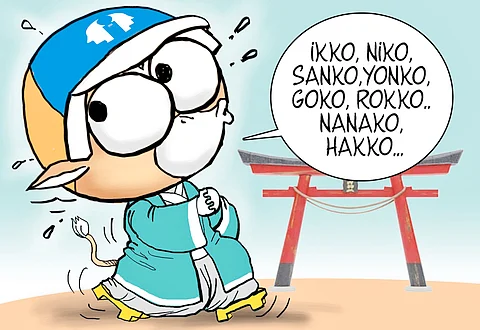
- NEWS
- the EDIT
- COMMENTARY
- BUSINESS
- LIFE
- SHOW
- ACTION
- GLOBAL GOALS
- SNAPS
- DYARYO TIRADA
- MORE

The Japanese are a very clean and disciplined people. They are also very health conscious, with their regular diet of fish, fruits and vegetables, while for exercise they walk.
There is now the exercise called “Japanese walking,” which has been found to be better than ordinary walking.
Walking strengthens weak hearts and improves blood circulation. It is the easiest and most practical exercise, particularly for senior citizens who are frail and for busy people who don’t have time for physical fitness activities.
It only takes 30 minutes to do Japanese walking to receive its optimum benefits. It is done by walking slowly for three minutes, then walking quickly at a hard effort for three minutes and repeating the cycle for 30 minutes, four or more days per week, New York Post (NYP) reports.
In an experiment comparing ordinary single-pace walking with Japanese walking, researchers found that the latter was superior for improving blood pressure, blood glucose levels, and body mass index, according to NYP.
Meanwhile, foreign visitors to Japan get their dose of walking exercise whether they like it or not.
Hong Kong resident Rubin Verebes visited Japan for the first time in September 2024 and shared that he was annoyed by the difficulty of finding a place to throw away litter, CNN reports.
“It is infuriating to walk around Tokyo the whole day, racking up 20,000-plus steps on your feet, and not finding a single bin to throw away the plastic wrap from your sandwich,” Verebes said, according to CNN.
Professor Chris McMorran, who teaches Japanese studies at the National University of Singapore, said students he brought to Japan for immersion asked him why there were no trash cans in public places, CNN reports.
Other visitors asked the same question, according to a survey by the Japanese National Tourism Organization.
Explaining, CNN quoted McMorran as saying that the Japanese culture of cleanliness encouraged communities to avoid the nuisance and cost of maintaining public garbage cans.
Meanwhile, Japanese consumers adapted by holding on to their trash until they got home.
